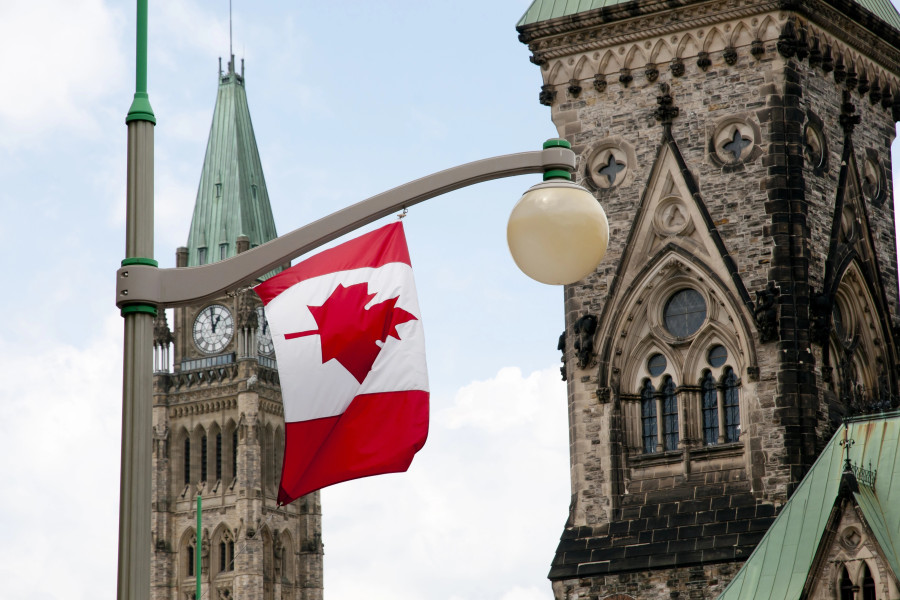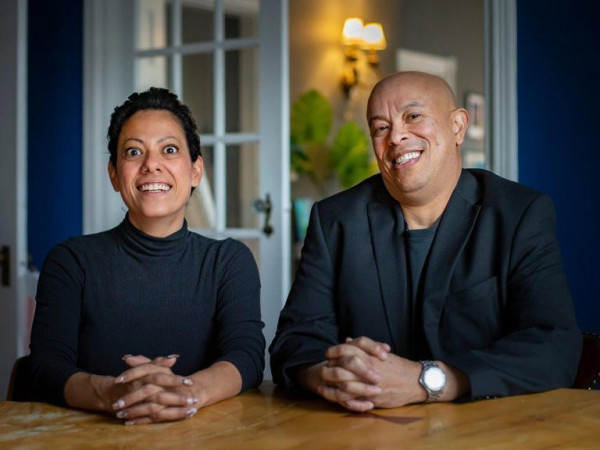It was announced in June that the Commission will undergo a special review from the Global Alliance of National Human Rights Institutions in light of strong evidence of anti-Black racism.
The CHRC is the institution tasked with hearing and deciding on claims of racism or discrimination within federal departments or organizations. In 2023, not only did the federal government find the Commission had discriminated against its own Black and racialized employees, but it also found that the Commission seemed to be unfairly dismissing cases based on race, colour or national, ethnic origin. In 2018, only 6 per cent of racial discrimination cases were deemed credible enough to move on to a tribunal.
Just today, it was announced that incoming CHRC chief Birju Dattani resigned before he even took the job, following the results of an independent probe by Justice Minister Arif Virani.
Some Jewish organizations raised concerns about Dattani's appointment due to past anti-Israel criticisms made on social media.
According to the review, he attempted to “downplay the critical nature of his work,” which it called “concerning”
It's also important to note that the CHRC has had a friendly relationship with the international body Global Alliance of National Human Rights Institutions (GANHRI), which is leading the review. The CHRC prepared the guide for GANHRI’s accreditation committee.
The GANHRI partners with the United Nations to credit national human rights institutions based on their compliance with the UN’s Paris Principles. The Paris Principles set minimum standards that national human rights institutions must uphold. Countries that don’t meet the mark lose their “A” status and can have their UN privileges, like participating in the UN Human Rights Council, revoked. Bangladesh, Hungary, and Venezuela all have “B” status, for example.
The UN has never investigated Canada’s human rights record. This CHRC review was initiated by a request from a coalition of civil society organizations, called the Coalition Against Workplace Discrimination, which includes the Black Class Action Secretariat, the Public Service Alliance of Canada, and others. The coalition raised concerns about racial discrimination at the CHRC and how it fulfills its mandate of resolving complaints of discrimination against federally regulated entities.
The GANHRI agreed to review the CHRC in June after the Coalition highlighted evidence of discrimination in findings by the Treasury Board Secretariat’s and Senate Committee. One of the Coalition’s requests is to reform the complaint procedure so individuals can directly access a tribunal rather than go through the CHRC.
A Shocking Report - The “N” Word Is Used Freely In Government Offices
Recently, the Coalition released a damning report following an internal audit which revealed blatant, rampant discrimination within the highest-level bureaucratic office in Canada - the Privy Council Office (PCO). The PCO is responsible for 137 government departments representing about 270,000 federal public servants. It’s the lead branch of the civil service with 1,200 employees providing support to the prime minister and cabinet.
According to the report, there’s an entrenched culture of racial stereotyping, microaggressions and verbal violence at the PCO. Black employees reported managers using the N-word "comfortably in their presence", saying they didn’t realize it was a racial slur. The Coalition found that this type of behaviour was “regularly practiced and normalized, including at the executive level.” The PCO’s workplace culture discourages reporting such incidents, the report found and it says that accountability mechanisms are “currently non-existent.”
The report found "significant material barriers to meaningful representation and inclusion" at the PCO. Black, Indigenous and racialized employees are often brought in to boost diversity numbers but are excluded from career-advancing opportunities.
‘Zero appetite for Black people’
“This idea of meritocracy is one of the biggest lies ever propagated in the Western world. It is so unbelievably stupid,” argues Wendell Nii Laryea Adjetey, assistant professor of post-reconstruction U.S. and African diaspora history and a William Dawson scholar at McGill University.
He’s one of the authors of a report published by the Canada Excellence Research Chair in Migration and Integration program at Toronto Metropolitan University that examined social mobility among racialized and immigrant communities. The report's research points to a “particularly striking” widening wage gap for Black men across several cohorts.
“We must acknowledge that this is not just embittered feelings of Black people or that they’re trying to scapegoat the government for their lack of social mobility and group success,” Adjetey said. “After you acknowledge something, then you have greater options in terms of how to address the issues.”
He argues Black people have to fight to overcome hurdles that are placed in their path to get a decent socioeconomic toehold in society because of systems and beliefs informed by racist logic.
“When African peoples came to this part of the world, they didn't want Black people to be a permanent fixture. They had no issues with Black people as property or as enslaved persons but they had zero appetite for Black people to aspire to stay in Canada to nation build. There's always this implicit push to force Black people to leave Canada and not to make Canada a permanent homeland even though Black people have been here since the early 1600s,” Adjetey said. “Waves of government have never had the appetite to respect the contributions of Black people as equal, as full rights-bearing members, as Canadians.”
Adjetey says these structures need shocks from outside the system to push for more inclusivity and justice.
Government intervention
“Racism and its devastating impacts are lived realities for far too many Canadians,” Kamal Khera says.
Khera, the federal Minister of Diversity, Inclusion and Persons with Disabilities, announced $110.4 million in investments to the government’s anti-racism and discrimination strategy in June.
The money will go towards more than 70 federal initiatives, and $70 will go directly to local initiatives across the country to give them access to resources to tackle discrimination. Khera believes making a real impact starts with supporting grassroots initiatives.
Khera called addressing racism and discrimination “her biggest fight” and says it’s a challenge for everyone because “there's a lot at stake for Canada.” She acknowledged the spike in reports of Islamaphobia, anti-Asian hate, antisemitism, and anti-Black racism over the last 5 years and hopes her government’s strategy leads to positive change.
“Racism exists and it won't disappear tomorrow but I think it's that constant incremental change that we need to make sure that we're keeping an eye on and not going backwards. It's fundamental for us to always step up, support Canadians and fight back. Is it ever enough? Absolutely not. But do we just sit back and say, ‘We're not going to do anything?’ Absolutely not.”
Khera says the strategy will help identify areas of discrimination and pinpoint what’s not working and why. She also says the strategy is meant to be evergreen and evolve as the world changes.
The 2024-2028 strategy lists new priorities, including law enforcement, public safety, housing, healthcare, and immigration.
The Minister also noted that racism and discrimination contribute to unequal outcomes in education and the workforce, which are provincial jurisdictions. Khera admits that it’s a challenge working with different levels of governments, departments, and various affected groups but hopes that the federal government can be a trendsetter in addressing discrimination.
“My job is to make sure that I'm doing everything in my power as Minister, working alongside and meeting with all of my colleagues, and challenging them on their own departments of inequities that exist.”
Khera wouldn’t answer direct questions about the GANHRI review of the CHRC but said, “There's a lot of systemic racism that has existed in our institutions for far too long but no one looked at it, no one wanted to do anything about it. We said, ‘No, we're gonna address this and talk about it.’ You can't talk about addressing racism outside when you can't do it and look internally.”
Adjetey is skeptical of efforts like the anti-racism strategy because he says, “We're afraid to hold government accountable,” and calls for more severe measures.
“To address the issues that have afflicted African peoples in this country, issues that were not of our doing, we must call for Truth and Reconciliation into the crimes of the State, which are in fact, crimes of the Constitution.”
Others who support the notion of the Royal Commission to address racial discrimination say the process can be positive because it allows members of the public to propose solutions to the problem and can result in policies being created.
The review is scheduled for the GANHRI’s Fall session, with a decision set to come months later. It will examine a five-year period from 2016 to 2022, which earned Canada its most recent “A” status.
While we’ll all be watching this review closely, people familiar with GANHRI’s rulings don’t expect any bombshells. In fact, they expect the CHRC to keep its top-tier status, like 90 of the 118 UN Member States. The UK’s human rights institution has received two special reviews but its status was not downgraded.

 By
By 








